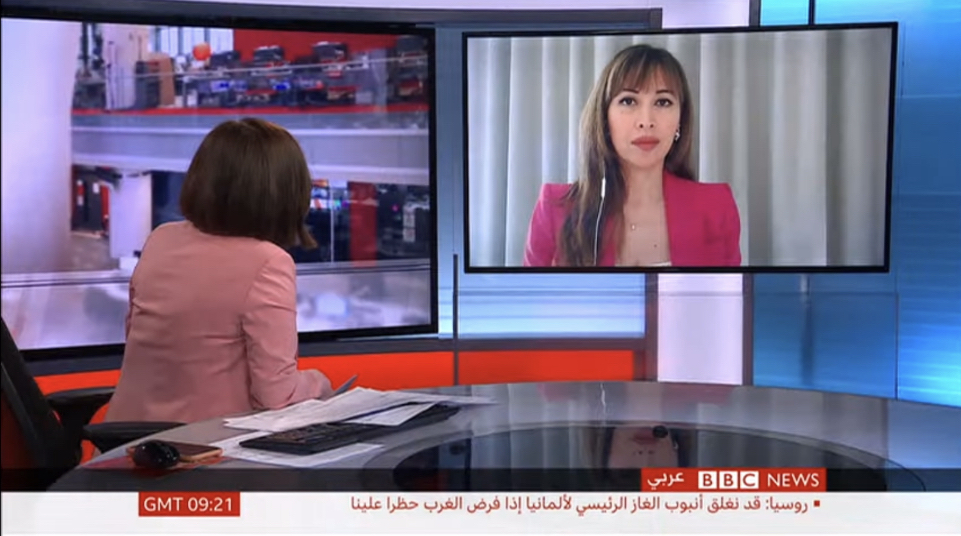In this interview with BBC Arabic, Dr Carole Nakhle, CEO of Crystol Energy, discusses to what extent Europe can decrease its reliance on Russian energy supplies amidst the conflict in Ukraine.
Dr Nakhle argues that it is not realistic to expect Europe to cut all its energy ties with Russia and surely not overnight. This is an aim that Europe has pursued for decades and to some extent it has succeeded, though far from being zero. For instance, since the 1990s, Europe has been able to decrease its dependence on Russian gas imports from more than 75% to 40% today.
The scenario of Russia cutting off its energy supplies is always a possibility. Although post-annexation of the Crimean peninsula, Russia did not cut off its energy exports in retaliation, the situation today is much more aggressive on both fronts. Russia has recently threatened to shut off Nord Stream I pipeline and the natural consequence of this step will lead to higher gas prices in the continent.
Despite this gloomy outlook, Europe has been able to secure gas supplies as high prices have been able to attract gas, particularly LNG, from other parts of the world, particularly the US, North Africa, Qatar and Norway. Additionally, the winter season in Europe is almost over and this will ease the demand for heating and electricity and, thus, on gas demand.
Under normal circumstances, Russian gas supplies are competitive due to lower transportation costs, among others. However, under current conditions, any other alternative will be the better option, partly because prices are already high and partly because Russia is using its gas as a foreign policy weapon.
On the impact of the rise in energy prices in the Middle East, Dr Nakhle says that the picture varies. Oil exporting countries, for instance, will see their oil and gas export revenues increasing whereas oil importing countries will face a tougher bill.
Finally, on the readily available alternatives to key commodities sources, Dr Nakhle argues that if such alternatives were quickly available, there wouldn’t have been a crisis in the first place.
Related Analysis
“No endgame for Ukraine“, Christof Rühl, Feb 2022
Related Comments
“Can Europe decrease its reliance on Russian gas?“, Dr Carole Nakhle, Mar 2022
“International oil companies exiting Russia“, Christof Rühl, Mar 2022
“Russia, OPEC+, Europe and Energy Markets“, Dr Carole Nakhle, Mar 2022
“Can Russia withstand another wave of sanctions?“, Dr Carole Nakhle, Feb 2022
“EU Energy Policy amidst the Current Gas Crisis“, Dr Carole Nakhle, Feb 2022
“Did Russia deliberately cause the gas crisis in Europe?“, Dr Carole Nakhle, Jan 2022









